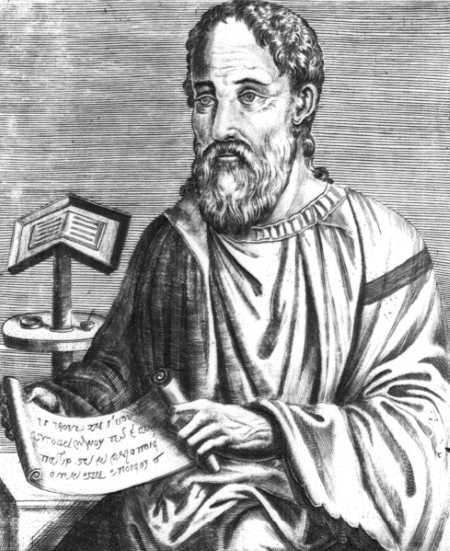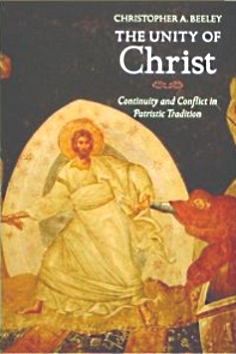Podcast: Play in new window | Download
Subscribe: Spotify | Email | RSS
 Why did Eusebius have to submit his own creed at the famous council of Nicea in 325? And why is he mostly remembered as a church historian today, even though he also wrote massive works of apologetics and theology? Was he, as is sometimes said, an “Arian”? How does he understand God and his Son, and why does he distinguish the man Jesus from the eternal Christ (the “Word” of John 1)?
Why did Eusebius have to submit his own creed at the famous council of Nicea in 325? And why is he mostly remembered as a church historian today, even though he also wrote massive works of apologetics and theology? Was he, as is sometimes said, an “Arian”? How does he understand God and his Son, and why does he distinguish the man Jesus from the eternal Christ (the “Word” of John 1)?
In this episode we meet and hear from this famous and influential 3rd and 4th century Christian leader, and we’ll answer all of the above questions. We’ll also hear about mentor Pamphilus, his Origenist inheritance, and his agreement with a Platonic scheme for understanding divine transcendence and divine providence. You’ll also learn about the other famous synod/council of bishops that met in 325! [spp-tweet tweet=”What did the famous historian Eusebius believe about Jesus and God?”]
Correction: I say here that the Arian controversy broke out in the early 320s, but it is really dated some time between 314-8 – really getting going when the bishop Alexander deposes and excommunicates Arius and co. c. 318-9.
Links for this episode:
- Letter of the Synod of Antioch (325)

- Eusebius: The Church History
- Christopher Beeley, The Unity of Christ: Continuity and Conflict in Patristic Tradition (kindle)
- A New Eusebius: Documents Illustrating the History of the Church to AD 337
- podcast 107 – Dr. Robert M. Bowman Jr. on triadic New Testament passages – part 1
- podcast 108 – Dr. Robert M. Bowman Jr. on triadic New Testament passages – part 2
- 10 steps towards getting less confused about the Trinity – #8 – trinity vs. Trinity
- anathema
- This week’s thinking music is “River Meditation” by Jason Shaw.

Very interesting. Especially coming to the 31 Minute Mark… Seeing I noticed something awfully similar in the writings of Justin when referring to “the Christ” being pre-existent.
(The Second Apology, Chapter 6)
“And His Son, who alone is properly called Son, the Word who also was with Him and was begotten before the works, when at first He created and arranged all things by Him, is called Christ, in reference to His being anointed and God’s ordering all things through Him; this name itself also containing an unknown significance; as also the appellation God is not a name, but an opinion implanted in the nature of men of a thing that can hardly be explained. But Jesus, His name as man and Saviour, has also significance. For He was made man also, as we before said, having been conceived according to the will of God the Father, for the sake of believing men, and for the destruction of the demons.”
Now I may be interpreting this in the wrong fashion, but It really does seem in this particular subsection that Justin labels the Son as “Christ” prior to the incarnation, and possibly even prior to all creation or on the account of creation.
Interesting stuff imo, could be interpreting this rightly, could be wrongly.. Thanks for the fantastic episode though Dale 🙂 I’m in love with the podcast.
A point to notice about this passage.
(The Second Apology, Chapter 6)
“And His Son, who alone is properly called Son, the Word, who also was with Him, and was begotten before the works, – WHEN – at first [Gk., ( ??? ??? ????? ) “at the time when the beginning.” Or: “as the beginning when”] He created and arranged all things by Him, is called Christ, in reference to His being anointed and God’s ordering all things through Him; this name itself also containing an unknown significance; as also the appellation God is not a name, but an opinion implanted in the nature of men of a thing that can hardly be explained. But Jesus, His name as man and Saviour, has also significance. For He was made man also, as we before said, having been conceived according to the will of God the Father, for the sake of believing men, and for the destruction of the demons.”
Gk., ( ??? ) = “When” = temporal, not eternal.
Gk., ( ??? ??? ????? ) “as the beginning when”
The manuscripts, i.e. both the Codex Regius Parisinus Graecus 450, (or Paris, Bibliothèque Nationale, gr. 450), and the Codex Claromontanus, read Gk., ( ??? ) at chapter 6.3 of Justin’s 2nd Apology, not Gk., ( ??? ) as some printed texts.
JUSTIN MARTYR (circa. 110-165 C.E.): “…But there is no name that has been given for the Father of all persons, by reason of Him being an un-generated [Or: “un-Begotten”] Person. For whomever it would be, who could be addressed by such a name, would have to have a person that is older than Him, in order for Him to be given such a name. [2.] But the: “Father,” and: “God,” and: “Creator,” and: “Lord,” and: “Sovereign,” these are not names, but rather titles, that derive their origin from His beneficial deeds and from the works [which He performs]. [3.] But the one who is His own Son, he is the only one who can legitimately be called: “a Son.” The Logos, who, prior to all of those things that have been made, and who is together with Him, [Gk., ( ?????????? )] was generated [Var: “created” Gk., ( ????????? ) Codex Claromontanus] as the beginning – WHEN – He caused everything to be created, and [when] He caused all things to be adorned through his intermediate agency; [and he is called]: “Christ,” because of his anointing, and because the One who is definitively God adorned all things through him…” – (Chapter 6.3, 2nd Apology)
Comments are closed.